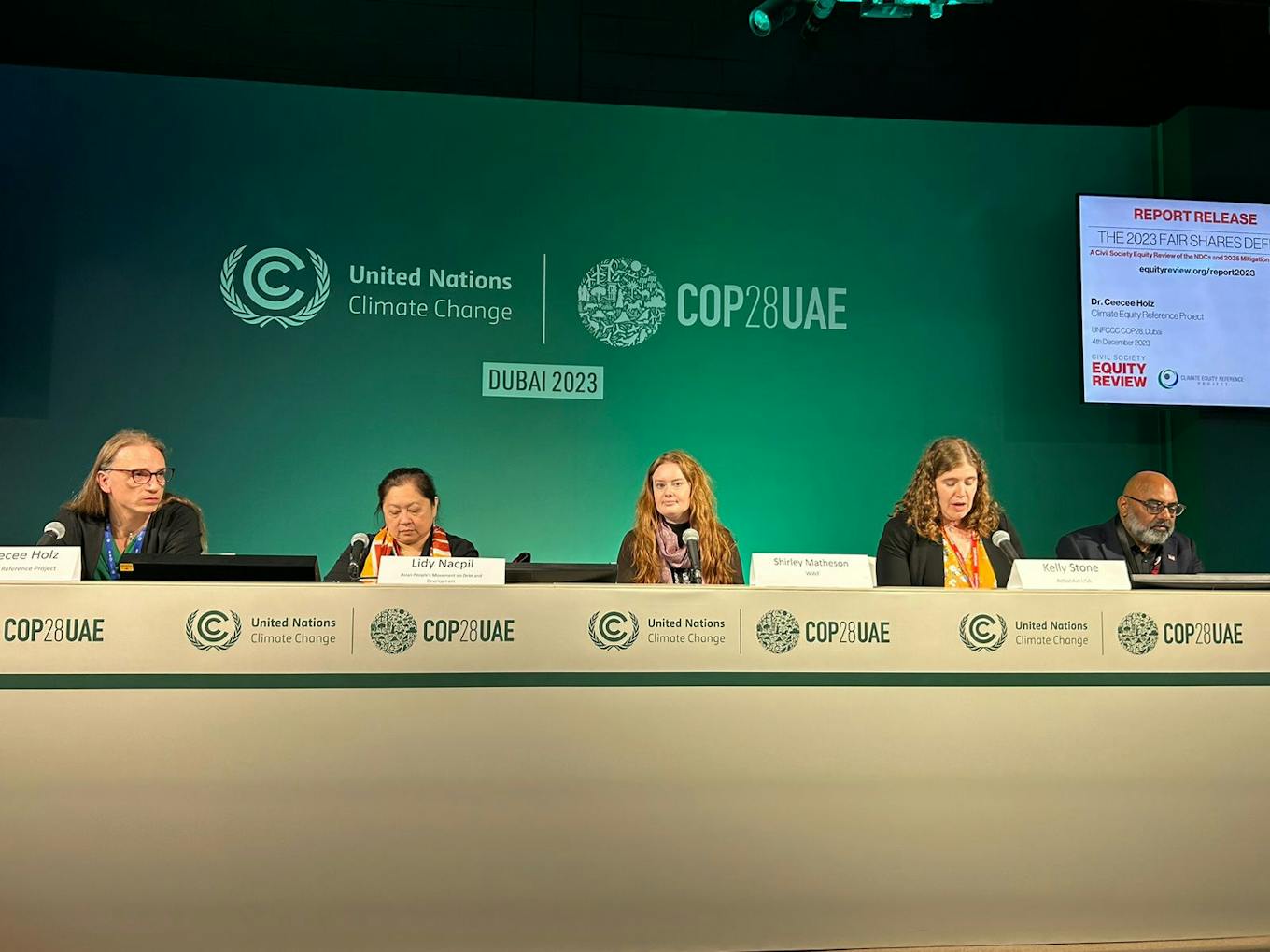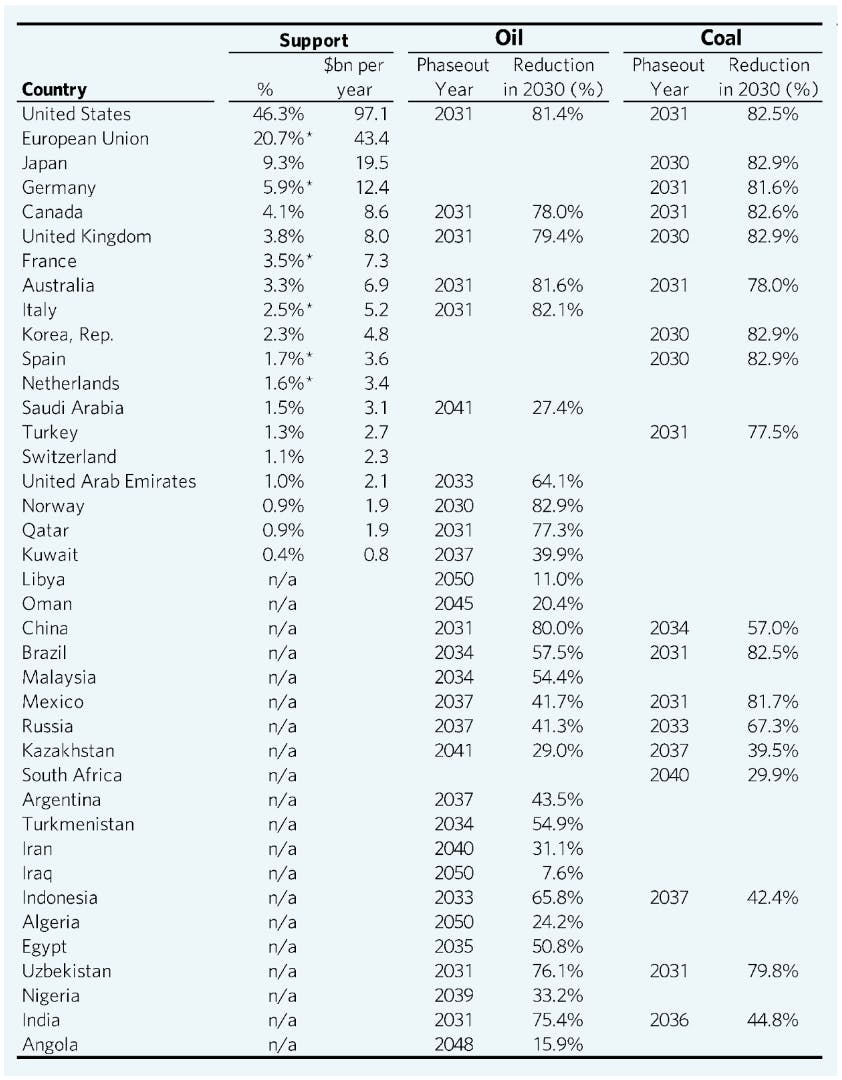COP28 president Sultan Al Jaber has been trying to calm the uproar this week over an old video that surfaced on Sunday, which has him on record saying that there is “no science” behind demands to phase out fossil fuels.
To continue reading, subscribe to Eco‑Business.
There's something for everyone. We offer a range of subscription plans.
- Access our stories and receive our Insights Weekly newsletter with the free EB Member plan.
- Unlock unlimited access to our content and archive with EB Circle.
- Publish your content with EB Premium.
He had made the comments in response to questions from Mary Robinson, the chair of the Elders group and a former United Nations special envoy for climate change, during a live online event on 21 November.
In the video, when challenged by Robinson regarding his position on fossil fuel investments, Al Jaber said: “Please help me, show me the roadmap for a phase-out of fossil fuel that will allow for sustainable socioeconomic development, unless you want to take the world back into caves.”
Now, authors of a latest report that reviews whether countries are doing their fair share to tackle the climate crisis are saying that the roadmap that Al Jaber is seeking exists. The Civil Society Equity Review, released this Tuesday on the sidelines of the COP28 climate summit, highlights how ceasing oil, gas and coal extraction worldwide by 2050, and at the same time getting wealthy nations to deliver on at least US$209 billion annually, can help developing countries transition away from dirty energy.
It adds that those who need to pay the bulk of the climate finance are the United States (46.3 per cent) and the European Union (20.7 per cent).
“
They pay according to their ability to do so because climate change is a global problem that must be solved by global cooperation, where the largest shoulders should bear the heaviest load.
Greg Muttitt, senior associate, International Institute for Sustainable Development
These percentages are derived from dividing the total global need among wealthy nations, in proportion to their responsibility and capacity to shift to renewables, said Greg Muttitt, one the report’s lead authors, explaining the review’s methodology.
“These countries have emitted the most greenhouse gases historically, and so carry that responsibility for addressing climate change,” said Muttitt, who is also the senior associate at Canada-based think tank International Institute for Sustainable Development.
“They pay according to their ability to do so because climate change is a global problem that must be solved by global cooperation, where the largest shoulders should bear the heaviest load. Unless costs are shared fairly, many countries will simply be unable to phase out fossil fuels at the pace the science requires.”

Civil society organisations launch the Civil Society Equity Review on the sidelines of COP28 on 4 December. Image: APMDD
Countries of the Global North have long sought to separately negotiate between the timelines for reducing the flow of heat-trapping greenhouse gases into the atmosphere and the means of support they should give to poorer countries.
If these are kept separate, developed states will end up agreeing to a mitigation deal but not finance it, leaving the Global South with mitigation targets they cannot achieve because finance is not forthcoming, Muttitt told Eco-Business.
“Global South countries must insist on the two issues being linked because finance is what makes mitigation possible,” he added.
Asian countries from the Global South like China, Thailand, Malaysia, Indonesia, Vietnam and India were among those identified in the report that should be eligible for support for their transition.
The Philippines, on the other hand, was not part of the assessment because it comparatively produces only small amounts of oil, gas and coal.

Fair share of climate support per country and their fossil fuel extraction phase-out dates. Image: Civil Society Equity Review 2023
Country timelines based on fossil fuel dependence
The Civil Society Equity Review was convened in 2015 and since then hundreds of groups, organisations and movements have endorsed its findings and recommendations.
The analaysis said that wealthy nations that are less dependent on fossil fuel extraction such as the US, Norway, Australia and the United Kingdom, must end fossil fuel extraction by early 2030s.
The UK must wean off oil and coal by 2031 and provide about 3.8 per cent of the global support. The US must also phase out fossil fuels on the same timeline, but it must provide a more sizable 46.3 per cent share of the support as it is a larger and wealthier economy.
India, which the report said has a low capacity to pay, faces a daunting challenge as it needs to phase out coal by 2036. This means financial support for its transition crucial, the report added.
Brunei and the United Arab Emirates have higher levels of dependence on oil revenues and jobs, but both have an earlier fossil fuel phase-out date in 2033. The report said this is because these countries have considerable financial capacity which enables them to invest in alternative sectors beyond energy to overcome their economic dependence on dirty fuels.












